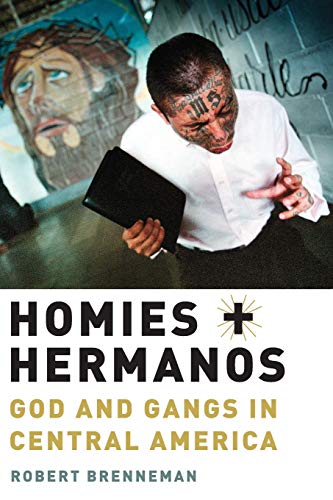


Homies and Hermanos: God and Gangs in Central America
H**O
I would like to mention I do not totally agree with some ...
As a Salvadoran I have to say this is an important book about the transnational gangs, one of the key is the author did the research at the countries that belongs to the call "northern triangle", this is an important approach. I would like to mention I do not totally agree with some facts, in some chapters the author use the word "mara", "marero" instead of "pandillero", gangster in English, and this is truly a mistake, at El Salvador's streets they are not "mareros" anymore, because "pandillero" refers to the evolution of the gangs, at early 90's we called them mareros because they were focused to protect their barrios, in some cases they were just a bunch of teenagers, now they are evolved. Furthermore, it is important to mention the gangs from El Salvador are quiet different from the gangs from Guatemala and Honduras, different does not mean less violent, from my point of view they were based on the rules from Los Angeles, when this pact is broken, the violence increased in our cities, this fact is mentioned in the book but in a general form, it would be great to get more details about it. Despite those facts, the book is a must for those of us who are involved in public policies and prevention strategies in our societies. We are in a big big mess, it is important for us to pay attention to the roots: education, job opportunities. family ties.
R**1
Tells it like it is.
I spent a lot of time in Guatemala -- fifty trips there between 1980 and 2019. While I do not pretend to know anything about gangs or religions or post-conflict street violence, this book rang true in so many ways.
J**N
Valuable Stories and Research
This book is good because of the many anecdotes and stories it includes from ex gang members, as well as the social science research it includes and weaves into analysis of the stories.It would be better if it had more anecdotes, and many of it's conclusions are repeated again and again throughout chapters. Many interviews are mentioned during analysis sections, that are not thoroughly quoted in the story. Many conclusions are reached by seemingly relying on assumptions.The value of this book stems principally from its anecdotes, but it should have included more complete transcriptions of interviews.
J**R
Informative and Thorough
This book was quite helpful for understanding the “evangelical exception”. Though the data is a bit dated, it was still very informative, and the quotes extracted for interviews spoke volumes.
R**L
I liked it.
I thought this was an interesting book. I liked it.
S**N
Four Stars
As advertised
P**N
Very Informative, But I Bet I Know Why Some Catholics Like It!
Just dipping into this book a bit, I learned all sorts of things I had never expected. This is clearly an extremely interesting piece of research. It helps a collateral observation I feel strongly about. To some extent or other, whether involved directly with drug-trafficking or not, these gangs are all progeny of the insane and disastrous "war on drugs." But the book actually highlights several times something of a more local relevance to these gangs' micro-cultures. It is something which I am quite sure makes the very interesting insights of the book strangely palatable to a certain sort of Catholic. Though that is not meant to imply that the author would agree, even while the book is everywhere reflective of Catholic-Evangelical competition. To such an extent that it almost seems like its principle leitmotiv. For the author, has done something amazing for Catholics. He has finally discovered a strange and unique micro-culture in which the archetypal evangelical macho man -- phenomenon very recognizable in this country as well! -- is somehow considered more "gay" or "maricon" than Catholic priests! Now there something incredible! And one is hopefully not being too cynical to suggest this relates to another observation in the book. The author reports that the Catholic hierarchy there are at pains to encourage the public and government to not "demonize" these extremely violent gangs. This is a bit strange, since one would think that if anything were worthy of "demonization" it would at least be a group of men devoted to murder and mayhem. Yet it is even stranger, because in much of Latin America gay people are regularly described by Catholic hierarchy as great threats to moral order. Therefore, with the author's valuable insights factored in, it would seem that the Catholic hierarchy seems to feel that murderous and civil-society-destroying gangs are to be characterized more generously than law-abiding gay people. What a Church, indeed! One must thank this author for having the brilliant research eye to lay this bare, as well as a lot of truly valuable information.
K**D
interesting ... but dissertational
we are invested in evangelism in El Salvador so this was really a great, in depth eval. it is long-winded as a dissertation is want to be, but scholarly & well balanced ESP between Catholic & Evangelical responses to this chronic issue.
Trustpilot
1 month ago
1 month ago